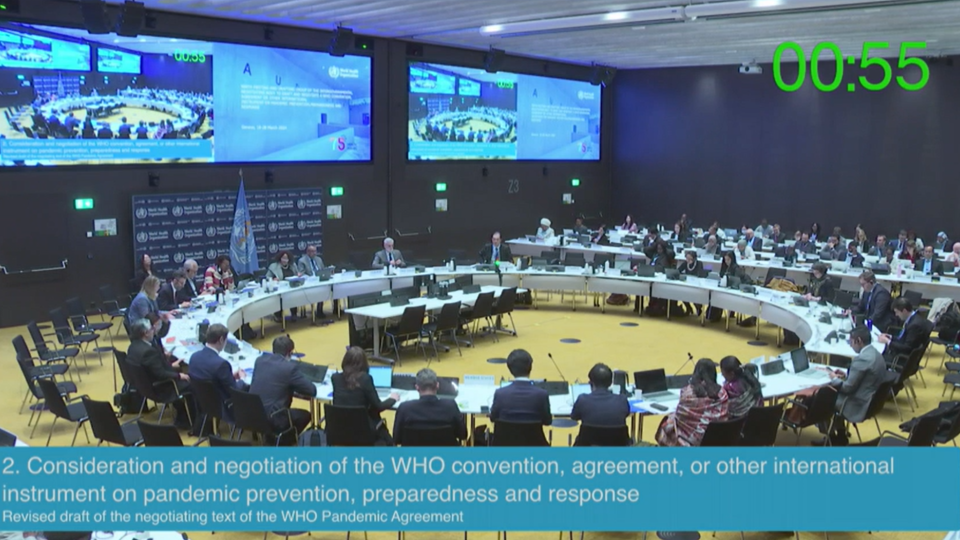Nurse leaders agree global nursing crisis built on shortages, lack of investment and spiraling nurse migration

More than 100 nurse leaders from 40 countries have held in-depth face-to-face meetings with the International Council of Nurses (ICN) in Sweden and Rwanda, where they raised their concerns about the growing crisis in nursing, driven by shortages and lack of investment. They highlighted nurses’ poor working conditions and the continuing harmful effects of international nurse recruitment which some National Nurses Associations in poorer countries equated with a form of “neo-colonialism”.
President of the International Council of Nurses, Dr Pamela Cipriano, who attended ICN’s 2024 International Workforce Forum (IWFF) in Stockholm, Sweden, earlier this month said:
“The nursing organizations we have consulted with have described an unsustainable situation where not only nurses are suffering, so are the patients and communities they serve. We need a massive increase in investment in nursing education, jobs and leadership, or it will be too late to ever make universal health coverage a reality. We know that nursing is the solution in so many cases, but without taking the necessary steps we will fail to reach Universal Health Coverage and populations around the world will suffer.”
‘International nurse recruitment has spiralled out of control in recent years. Every government has a duty to protect its population, but by recruiting experienced nurses from poorer nations, wealthier ones are effectively outsourcing the costs of training, getting their registered nurses on the cheap, without any form of reimbursement. This behaviour is now having dire consequences in many countries where serious gaps are being seen in health care systems that are under a great deal of pressure. The World Health Organization has ethical recruitment guidelines: they must be followed rigorously – to do otherwise is unconscionable.”
ICN Chief Executive Officer Howard Catton recently returned from a week-long meeting of ICN’s Organizational Development of National Nursing Associations (ODENNA) program in Kigali, Rwanda, where nurses told him the current nurse migration situation, where richer countries effectively out-source their nurse education to poorer countries, and then recruit the nurses, was ‘like a new form of colonialism’. The situation is compounded by underfunding of nursing positions in poorer countries such that new nurses are unemployed or underemployed.
Mr Catton said, “The African nurse leaders said they were angry that high-income countries were using their economic power to take the nursing workforce they needed from poorer, more fragile countries. These wealthier countries were effectively creating a new form of long-term dependency that hinders the development of health systems in the source countries.
This week, Mr Catton addressed the World Health Organization Intergovernmental Negotiating Body (INB), which is finalizing the new Pandemic Accord.
Mr Catton told the INB that the current draft of the Accord did not fully reflect the severity and impact of the pandemic on nurses and other health care workers (HCWs), nor how urgent it is to address the critical global shortage of HCWs and the closely related issue of nurse migration. He said: “There is a great disparity in the distribution, production, and recruitment of HCWs, as evidenced by the current international nurse recruitment crisis and the disruption it is causing. This is a prime case of global inequity.”
Mr Catton concluded that the Accord should replicate the wording of last October’s United Nations political declaration at the High-Level Meeting on Universal Health Coverage, which highlighted significantly increased international recruitment driven by a small number of high-income countries and causing health harms and worsening health inequalities.